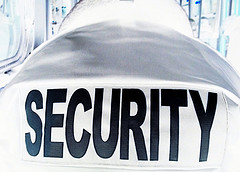With over 239 million web sites on the Internet it’s no surprise that Internet security is a hot topic. While it’s virtually impossible to nail down a solid number, it’s safe to say that there are millions of computer viruses, spyware applications, and assorted malware out there that can infect your computer. Some of that malware is merely an annoyance and some of it can do real damage. That’s where basic Internet security comes into play. You can protect yourself with a few simple tools and set them up to automatically protect you 24/7/365.
We’ve compiled a list of 3 pieces of software that most Internet security experts should agree are the core components of basic Internet security for your computer.
Firewall
A firewall is a piece of software or a device that sits between your computer and the Internet and blocks and/or filters all of the traffic before it gets into your system. In the home computing world, a firewall is more often than not software. At it’s heart, a firewall only allows certain kinds of traffic or requests to get through, and most modern firewalls allow you to customize what kind of traffic is accessible, such as email and web surfing.
Installing and configuring a firewall is is a great first-line defense against hackers trying to remotely access your computer. Once the bad guys have a foothold on your computer there’s not telling what they might do. Keep in mind, however, that a misconfigured firewall can be just as bad as not having one, so it’s best to either carefully read the firewall’s instructions or allow the default configuration to be set up by the firewall itself.
Antivirus
Detection, protection and deletion of malware such as computer worms, computer viruses, etc. are the bread and butter of antivirus software. Using a variety of virus detection techniques, antivirus software secures your emails, instant messages, and web browsers.
With the sheer number of viruses that are written and released every day, much less every year, it’s easy to see why you need antivirus software installed on your computer. Just be sure to stay updated with new patches, virus definitions, etc. otherwise you might leave yourself open to malware.
Antispyware
Spyware is generally considered to be any piece of software that is installed on your computer (usually without your permission) that tracks your computer usage, your browsing habits, and may even collect your personal information. Like it’s name implies, spyware snoops on what you do on your computer and sends that information back to the folks who wrote the spyware.
Think about all of the sensitive data on your computer (tax information, social security numbers, pictures of your kids, etc.) and all the different web sites that you visit. Now imagine if a complete stranger has access to all of that information and you have no idea they are snooping on you. Without antispyware software installed that’s a very real possibility, and you are leaving yourself open to potential computer infections.
In Closing…
There are bad guys out there who know that there are still plenty of people who aren’t protecting their computers. Keep your family’s information safe on your computer with a firewall, antivirus, and anti-spyware software.
If you're looking for great anti-virus software that won't break the bank, try StopSign. You don't pay extra for tech support for difficult malware, and our web protection software just works. Download & install StopSign to find out why our members choose us over the other options.




Recent Blog Comments